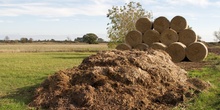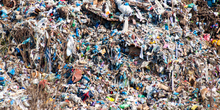Agriculture & Land Management
Our Work
Latest in Bioenergy
-
Biofrontiers – sustainability critical to the development of advanced biofuels
Adherence to effective and workable sustainability criteria is an essential requirement when using public support to incentivise advanced alternative fuels.
-
Understanding the consequences of changing biomass demand for energy
Understanding the consequences of increased biomass demand for energy on the environment is central to the development of future policy on renewable energy in Europe. This study seeks to help answer this need by modelling different levels of biomass demand for energy and the consequences for land use and forest based industries.
-
The cascading use of woody biomass in the EU – challenges, opportunities and policy solutions
Improving the resource efficient use of wood through cascading the resource from one use to another, requires action throughout the wood flow. Current efforts focus on recovering and re-using waste wood but more could be done with the production and utilisation of wood processing residues and improving the balancing between the material and energy use of wood.
-
IEEP sets out new sustainability criteria for biofuels post 2020
Defining effective and workable sustainability criteria for biofuels is one of the critical steps in decarbonising Europe’s energy sector. Such criteria must provide the necessary safeguards for the use of bioresources in Europe, as well as the policy and investment certainty required for sustainable deployment.
-
Sustainability criteria for biofuels post 2020
Defining effective and workable sustainability criteria is one of the critical steps in decarbonising Europe’s energy sector. They must provide the necessary safeguards for the use of bioresources in Europe, as well as the policy and investment certainty required for sustainable deployment.
-
Mapping study on the cascading use of wood products
Promoting the cascading use of wood through policy is one approach to improve resource efficiency and increase the overall availability of wood for use in a variety of sectors.
-
How to stimulate a bio-economy based on waste? – A study for the UK Government
Waste resources have the potential to provide a core component of developing bio-economies across the globe. A new IEEP report reviews how waste has been incorporated into existing bio-economy strategies, and the conditions that have enabled this.
-
Conclusion on ILUC in sight
After five years of discussion, a landmark moment has been reached whereby the indirect land use change (ILUC) impacts of biofuels almost certainly will be addressed in EU law.
-
Building a high value bioeconomy in the UK: opportunities from waste
The UK is exploring opportunities to develop a high value bioeconomy based initially on waste. IEEP is helping to identify international best practice examples in order to maximise the environmental and economic benefits of this new Government initiative.
-
Space for energy crops – An assessment on the potential contribution of Europe’s energy future
The overall energy potential that can be produced from growing dedicated energy crops on ‘spare’ land in the EU is low. This new report explores the potential for the additional production of energy crops in Europe on land not already used for food production, forestry, or providing other important services, and assesses some of the challenges associated with increasing output.
-
Securing Biomass for Energy
A new IEEP report outlining how to develop a UK bioenergy sector that mitigates environmental risks and promotes win-win situations for renewables deployment and biodiversity.
Related
-

Developing a sustainable future for biofuels
Disseminating knowledge and informing the debate around the future of biofuel policy in the EU.
Highlights
-

Understanding the consequences of changing biomass demand for energy
Understanding the consequences of increased biomass demand for energy on the environment is central to the development of future policy on renewable energy in Europe. This study seeks to help answer this need by modelling different levels of biomass demand for energy and the consequences for land use and forest based industries.
-

The cascading use of woody biomass in the EU – challenges, opportunities and policy solutions
Improving the resource efficient use of wood through cascading the resource from one use to another, requires action throughout the wood flow. Current efforts focus on recovering and re-using waste wood but more could be done with the production and utilisation of wood processing residues and improving the balancing between the material and energy use of wood.
-

Sustainability criteria for biofuels post 2020
-

How to stimulate a bio-economy based on waste? – A study for the UK Government
